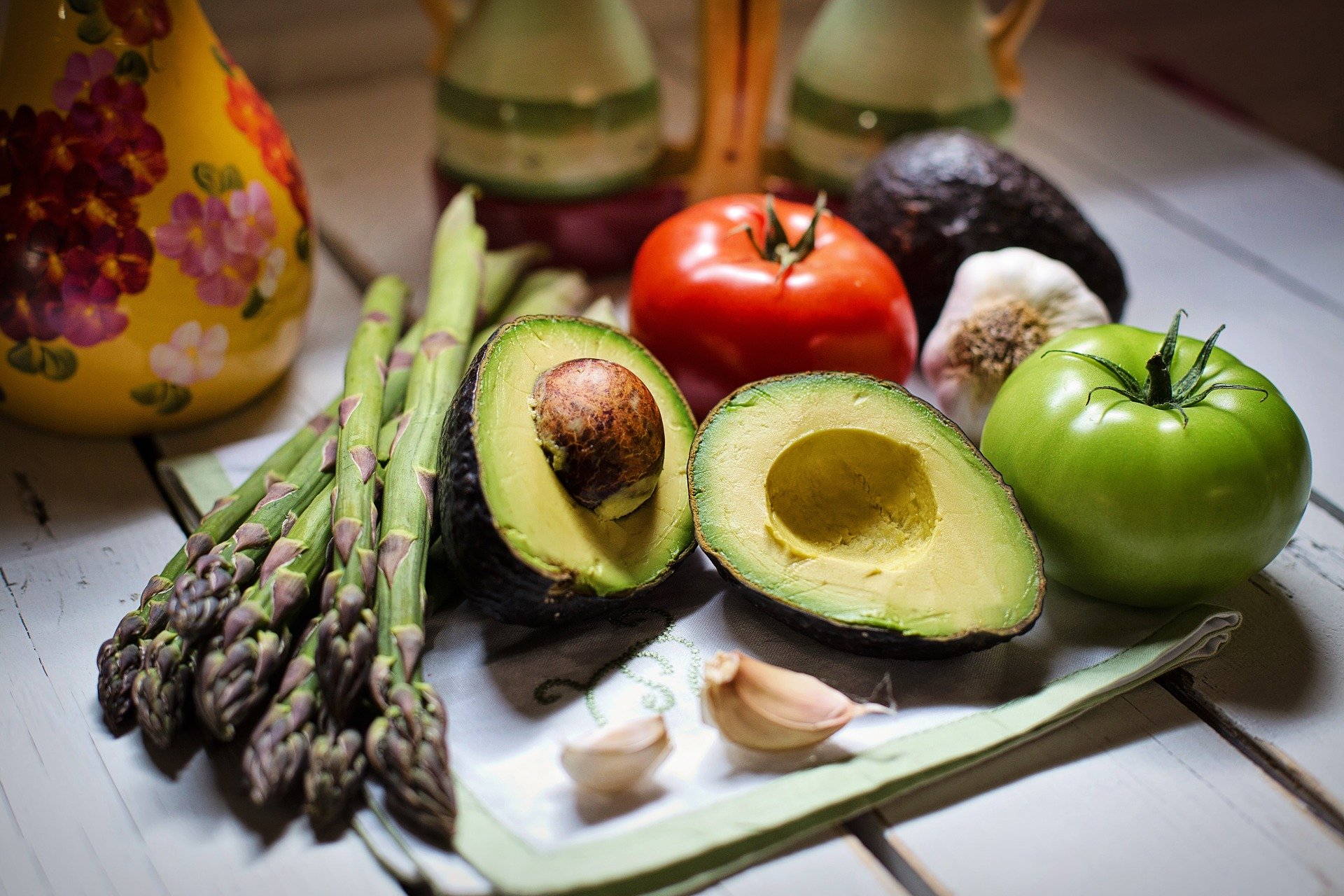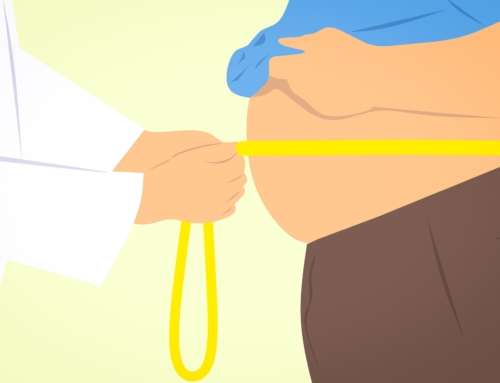When I am working with patients on weight loss, cholesterol, blood sugars and high blood pressure diet is a big topic I explore. Often I hear “I don’t eat that bad and I should be able to lose weight, control my blood sugars”, etc. Studies are showing if we just “go with the flow” and eat like everyone around us you will eventually become obese. In Oklahoma 2 out of 3 adults weigh more than they should and we have the 3rd worst obesity rate in the nation. So be careful who you are comparing yourself to! Next time you are at a restaurant just take a look at how much food you are served. Most servings these days are actually double or even triple portions and that’s not counting all of the chips and bread that is served before and during the meal. With a “not that bad” of a diet there is a higher risk of being overweight, having high cholesterol, high blood pressure, heart disease, diabetes and so many more issues. Therefore making small changes in your diet goes a long way. More and more evidence is emerging regarding how diet affects our health. There has been more attention recently to plant based diets.
There are several differences in the types of plant-based diets… some good and some not-so-good. READ on to explore the differences and the pros and cons to vegan, vegetarian and plant based diets and why you need to start adding more veggies to your plate!
There are so many names thrown around out there regarding diets that I think they need to be clarified.
Vegan: excludes all animal products (meat, fish, poultry, eggs and dairy). It does not require consumption of whole foods or restrict bad fats or sugar.
Raw food, vegan: same as vegan except the food is never cooked at high temps (greater than 118 degrees)
Vegetarian: excludes all animal products, eggs, meat, seafood & poultry, but does not require a whole foods diet or restricts bad fats/sugar/processed foods.
Lacto-vegetarian: vegetarian but includes dairy products (milk, yogurt, etc).
Ovo-vegetarian: vegetarian but includes eggs.
Whole foods, plant based: Excludes animal products but encourages plant foods in their whole form. In general fat is usually restricted.
Mediterranean: similar to whole foods, plant based but allows chicken, dairy, eggs and red meat in limited quantities. Fish and good fats like olive oil are encouraged.
*** Just because you are vegan or vegetarian does not mean you are eating healthy especially if you are eating a highly processed diet.
When you look at studies evaluating diets there are some interesting findings.
A vegan or vegetarian diet is generally helpful is lowering heart disease, diabetes and obesity. A study over five years looked at annual weight gain and reported it was lowest among individuals who had changed to diets eating less animal foods. A study in 2008 reported that non-vegetarians were 74% more likely to develop diabetes over a 17 year follow up period than vegetarians.
Plant-based diets have been shown to raise resting energy expenditure which means you burn more calories just sitting around than someone eating a meat based diet. A good plant based diet will also help decrease your appetite and increase your satiety. In the Lifestyle Heart Trial, 82% who followed this diet had some level of regression of atherosclerosis (plaque in the arteries). This was a plant-based diet that had restrictions on cholesterol as well as low fat. There have also been numerous studies with the mediterranean diet and reports of as much as a 70% decrease in all-cause mortality and coronary events. I can give you so many more references connecting the dots to better health and more veggies and less animal products.
Clearly, migrating to a plant based diet is ideal but it is tricky to get the important nutrients our bodies need. Balance has to be key and what I hear when people are eating plant-based is they are eating a lot of the same foods over and over and have a tendency to fill it with processed foods rather than focusing on eating a whole food diet. Some key areas of concern are:
- Protein: plant based diets can give you enough protein if you focus on the essential amino acids. While meat, dairy, poultry and eggs all have these essential amino acids many plant based foods do, too but you have to make a conscious effort to meet your protein requirements. Quinoa is an excellent source of protein and nutrients. Pairing your foods together becomes important in achieving balance. Brown rice and beans as well as hummus with whole wheat pita are examples of excellent balance. Soybeans are also good sources of protein but be sure and get organic.
- Iron: while plants do contain iron it is often very difficult to absorb. Iron rich plants include beans, spinach, cashews & cabbage to name a few. The American Dietetic Associates reports that iron-deficiency anemia is rare in people who follow a plant based diet. While a true anemia is rare I see very, very low ferritin levels (iron storage) that is difficult to raise in vegans/vegetarians. Low ferritin contributes to fatigue as well as decreased immune function. Supplementation is often necessary for vegans and vegetarians and the longer you have this diet the more you need it.
- B12: B12 is used for blood formation and is important for our cells. Low B12 can cause serious issues of anemia, nerve damage & tinnitus to name a few issues. It is very important to supplement with a good B complex vitamin if you are a strict vegan or vegetarian.
- Calcium: low calcium increases risk of bone demineralization. Good plant sources include mustard and turnip greens, bok choy, and kale. Spinach also has good calcium but is more difficult to absorb.
- Vitamin D: I think we are all deficient in vitamin D so this is not just a plant-based diet issue. We all need extra vitamin D.
- Fatty acids: depending on how much fats you are avoiding this can manifest in skin, hair and nail issues. Foods with higher omega 3’s should be included like flax oil and walnuts (nuts and seeds).
There are a few conditions that a plant based diet could be even more beneficial and these are kidney failure and multiple sclerosis. There are many other conditions that would benefit but I wanted to point these two out. People with kidney disease should work with a dietician if they decide to migrate to a plant based diet because they will need to watch foods that are high in potassium and phosphorus.
When you decide to make diet changes, keep in mind it doesn’t have to be an all-or-none approach. Making a conscious effort to include more plant-based whole food products benefits EVERYONE!! Personally, I believe the mediterranean diet is probably one of the most well-balanced diets. It encourages good fats and whole foods but does allow animal products.
If you don’t want to actually follow a diet, just cutting down on processed foods is a huge step in the right direction.
The New Year is coming up and this is always a great time to commit to one change. Why not consider that one change being incorporating more whole, plant-based foods? If you need a kickstart then join us for our 10 day detox in January! It is predominantly plant based but does incorporate fish and with the help of a protein shake and meals from Trinity’s Real Meals Kitchen this will be one of the easiest transitions you can make!
To your health,
Laura









